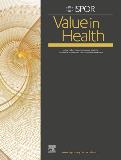
Real-world evidence on treatment outcomes can be an important aspect of the evidence basis for decision making if it is seen as credible. For real-world studies that are meant to test hypotheses about comparative-effectiveness or safety, a key aspect of credibility is that they are conducted transparently with tests that follow a prespecified analytic protocol. Preregistration of such study protocols on a public website would help build trust that their results can be used for decision-making purposes.
Establishing a Culture of Transparency for Real-World Evidence Studies...
The Real-World Evidence Transparency Initiative Partnership is a joint collaboration and ongoing effort between ISPOR, the International Society for Pharmacoepidemiology, the Duke-Margolis Center for Health Policy, and the National Pharmaceutical Council. The objective of this initiative is to establish a culture of transparency for study analysis and reporting of hypothesis evaluating real-world evidence studies on treatment effects.
Improving Transparency to Build Trust...
 The Real-World Evidence Transparency Initiative published a plan to encourage routine registration of noninterventional real-world evidence studies used to evaluate treatment effects. The report, “Improving Transparency to Build Trust in Real-World Secondary Data Studies for Hypothesis Testing—Why, What, and How: Recommendations and a Road Map from the Real-World Evidence Transparency Initiative,”
was published in the September 2020 issue of Value in Health.
The Real-World Evidence Transparency Initiative published a plan to encourage routine registration of noninterventional real-world evidence studies used to evaluate treatment effects. The report, “Improving Transparency to Build Trust in Real-World Secondary Data Studies for Hypothesis Testing—Why, What, and How: Recommendations and a Road Map from the Real-World Evidence Transparency Initiative,”
was published in the September 2020 issue of Value in Health.
More...
The report, “Improving Transparency to Build Trust in Real-World Secondary Data Studies for Hypothesis Testing—Why, What, and How: Recommendations and a Road Map from the Real-World Evidence Transparency Initiative,” was published in the September 2020 issue of Value in Health. The plan includes specifying the rationale for registering hypothesis-evaluating treatment effectiveness real-world evidence studies, the studies that should be registered, where and when these studies should be registered, how and when analytic deviations from protocols should be reported, how and when to publish results, and incentives to encourage registration.
Real-World Evidence Registry
The Real-World Evidence Registry provides researchers with a fit-for-purpose platform to register their study designs before they begin work to facilitate the transparency needed to elevate the trust in the study results.
More...
Real-world evidence studies can be used for hypothesis evaluation of treatment effects including safety (HETE studies). However these studies can also be perceived as less rigorous than clinical trials especially when not preregistered in a public setting such as ClinicalTrials.gov or the EU-PAS register.
ISPOR and its partners ISPE, NPC, and Duke Margolis have developed a simplified registration site especially for RWE HETE studies using secondary data. This searchable site provides a place for preregistration of studies that may not require registration for regulatory purposes but benefit from the rigor of transparent study methods and also provide a reference (such as a URL or doi) to share with peer reviewers, assessors, or other decision making bodies. Researchers can get started ‘here’ by creating a profile on the Open Sciences Framework and registering their study on the RWE Registry.
Shaking the Myth of Real-World Evidence
On-Demand Webinar
Learn more by watching the on-demand webinar, “Shaking the Myth of Real-World Evidence: Updates from the RWE Transparency Initiative.” This session provides updates from the initiative including a walk-through of the study registration site and updates on the special task force developing a standardized RWE protocol template.
Additional Resources
- Real-World Evidence Registry
 Good Practices Reports and Other ISPOR Reports from Value in Health
Good Practices Reports and Other ISPOR Reports from Value in Health
- HARmonized Protocol Template to Enhance Reproducibility of Hypothesis Evaluating Real-World Evidence Studies on Treatment Effects: A Good Practices Report of a Joint ISPE/ISPOR Task Force
- "Improving Transparency to Build Trust in Real-World Secondary Data Studies for Hypothesis Testing—Why, What, and How: Recommendations and a Road Map from the Real-World Evidence Transparency Initiative"
- "Good Practices for Real-World Data Studies of Treatment and/or Comparative Effectiveness"
- "Reporting to Improve Reproducibility and Facilitate Validity Assessment for Healthcare Database Studies V1.0"
- "Unlocking the Promise of Real-World Evidence" (Value & Outcomes Spotlight, Vol. 6, No. 5)
- ISPOR's Real-World Evidence Strategic Initiatives
Conferences & Summits

September 28, 2025
<p data-start="117" data-end="747"><strong data-start="117" data-end="281">Enhance your ability to generate real-world evidence (RWE) for regulatory, payer, and HTA decisions through causal inference methods and target trial emulation.</strong><strong data-start="117" data-end="281"></strong><strong data-start="117" data-end="281"></strong><br data-start="281" data-end="284" /></p><p data-start="117" data-end="747">This course explores the use of causal principles and modeling to improve the design and analysis of observational studies and clinical trials, especially in scenarios where traditional approaches, such as the intention-to-treat (ITT) analysis, fall short—such as treatment switching. Participants will learn how to define appropriate estimands, mitigate common biases, and apply cutting-edge methods to support transparent, decision-relevant evidence generation.</p><p data-start="749" data-end="778"><strong data-start="749" data-end="778">Technical Topics Include:</strong></p><ul data-start="780" data-end="1862"><li data-start="780" data-end="944"><p data-start="782" data-end="944"><strong data-start="782" data-end="821">Causal principles & causal diagrams</strong> – Learn how to use directed acyclic graphs (DAGs) to identify and minimize bias (e.g., time-zero bias, immortal time bias)</p></li><li data-start="945" data-end="1050"><p data-start="947" data-end="1050"><strong data-start="947" data-end="973">Target trial emulation</strong> – Design observational studies that mimic the structure of randomized trials</p></li><li data-start="1051" data-end="1167"><p data-start="1053" data-end="1167"><strong data-start="1053" data-end="1099">Methods to adjust for baseline confounding</strong> – Including multivariate regression and propensity score techniques</p></li><li data-start="1168" data-end="1394"><p data-start="1170" data-end="1211"><strong data-start="1170" data-end="1211">Methods for time-varying confounding:</strong></p><ul data-start="1214" data-end="1394"><li data-start="1214" data-end="1227"><p data-start="1216" data-end="1227">G-formula</p></li><li data-start="1230" data-end="1322"><p data-start="1232" data-end="1322">Marginal structural models (MSMs) with inverse probability of treatment weighting (IPTW)</p></li><li data-start="1325" data-end="1394"><p data-start="1327" data-end="1394">Rank-preserving structural failure-time models using g-estimation</p></li></ul></li><li data-start="1395" data-end="1555"><p data-start="1397" data-end="1555"><strong data-start="1397" data-end="1430">Estimands for decision-making</strong> – Define and apply appropriate estimands to address clinical or policy questions in settings impacted by treatment switching</p></li><li data-start="1556" data-end="1705"><p data-start="1558" data-end="1590"><strong data-start="1558" data-end="1590">Applied case studies in HTA:</strong></p><ul data-start="1593" data-end="1705"><li data-start="1593" data-end="1646"><p data-start="1595" data-end="1646">Use of external control arms in single-arm trials</p></li><li data-start="1649" data-end="1705"><p data-start="1651" data-end="1705">Examples of trials influenced by treatment switching</p></li></ul></li><li data-start="1706" data-end="1862"><p data-start="1708" data-end="1862"><strong data-start="1708" data-end="1731">HTA agency insights</strong> – Examine global perspectives on acceptance and barriers to implementing causal inference methods, with a focus on Asia and beyond</p></li></ul><p data-start="1864" data-end="1927"><strong data-start="1864" data-end="1927">This Course Offers Practical Tools You Can Use Immediately:</strong></p><ul data-start="1929" data-end="2217"><li data-start="1929" data-end="2010"><p data-start="1931" data-end="2010">Step-by-step guidance for selecting and implementing causal inference methods</p></li><li data-start="2011" data-end="2075"><p data-start="2013" data-end="2075">Best practices for aligning estimands with decision problems</p></li><li data-start="2076" data-end="2143"><p data-start="2078" data-end="2143">Tools for applying causal approaches in both RWE and trial data</p></li><li data-start="2144" data-end="2217"><p data-start="2146" data-end="2217">Recommendations for incorporating causal modeling into HTA frameworks</p></li></ul><p data-start="2219" data-end="2494">The course features lectures, real-world case examples, and interactive discussions. It is designed for researchers, statisticians, epidemiologists, health economists, outcome researchers, and health policy decision-makers working across all domains of health and healthcare.</p><p><strong fontscheme="2" style="background-color:transparent;color:inherit;font-size:inherit;text-align:inherit;text-transform:inherit;word-spacing:normal;caret-color:auto;white-space:inherit;">PREREQUISITE:</strong><span style="background-color:transparent;color:inherit;font-family:inherit;font-size:inherit;text-align:inherit;text-transform:inherit;word-spacing:normal;caret-color:auto;white-space:inherit;"> </span>Students are expected to have a basic knowledge in epidemiologic studies and methods (including the concept of confounding).</p><p><strong style="background-color:transparent;color:inherit;font-size:inherit;text-align:inherit;text-transform:inherit;word-spacing:normal;caret-color:auto;white-space:inherit;">LEVEL:</strong><span style="background-color:transparent;color:inherit;font-family:inherit;font-size:inherit;text-align:inherit;text-transform:inherit;word-spacing:normal;caret-color:auto;white-space:inherit;"> Experienced</span><strong></strong></p><p><strong>TRACK:</strong> Real World Data & Information Systems<br /><br />This short course is offered in-person at the ISPOR Real-World Evidence Summit 2025 . Separate registration is required. <a href="/conferences-education/conferences/upcoming-conferences/ispor-real-world-evidence-summit-2025">Visit the ISPOR Real-World Evidence Summit 2025 Program page to register</a> and learn more.<strong><strong></strong></strong></p><p><strong style="background-color:transparent;color:inherit;font-size:inherit;text-align:inherit;text-transform:inherit;word-spacing:normal;caret-color:auto;white-space:inherit;">FACULTY MEMBERS</strong></p><div><strong></strong></div><div><strong></strong></div><div><strong></strong></div><div><strong></strong></div><div><strong fontscheme="2">Uwe Siebert, MD, MPH, MSc, ScD</strong></div><div>Professor of Public Health, Medical Decision Making and Health Technology Assessment</div><div>UMIT TIROL - University for Health Sciences and Technology</div><div>Hall in Tirol, Austria, and </div><div>Harvard Chan School of Public Health </div><div>Boston, MA, USA</div><div fontscheme-block="2"><strong fontscheme="2" style="background-color:initial;font-size:inherit;text-align:inherit;text-transform:inherit;word-spacing:normal;caret-color:auto;white-space:inherit;"> </strong></div><div><strong fontscheme="2">Nicholas Latimer, MSc, PhD</strong></div><div>Professor of Health Economics</div><div>SCHARR, University of Sheffield</div><div>Sheffield, Derbyshire, Great Britain and</div><div>Analyst</div><div>Delta Hat Limited, Powered by Petauri</div><div>Nottingham, UK</div><div></div><div></div><div><p><strong style="background-color:transparent;color:inherit;font-size:inherit;text-align:inherit;text-transform:inherit;word-spacing:normal;caret-color:auto;white-space:inherit;">Schedule:</strong></p><p><strong>LENGTH: </strong>4<strong> </strong>Hours | Course runs 1 day</p><p><strong>Sunday, 28 September 2025 | Course runs 1 Day<br /></strong>13:00-17:00 Japan Standard Time (JST)</p></div><p><strong><em>ISPOR short courses are designed to enhance knowledge and techniques in core health economics and outcomes research (HEOR) topics as well as emerging trends in the field. Short courses offer 4 or 8 hours of premium scientific education and an electronic course book. Active attendee participation combined with our expert faculty creates an immersive and impactful learning experience. Short courses are not recorded and are only available during the live course presentation.</em></strong></p>)
Short Courses & Webinars

September 28, 2025
<p data-start="117" data-end="747"><strong data-start="117" data-end="281">Enhance your ability to generate real-world evidence (RWE) for regulatory, payer, and HTA decisions through causal inference methods and target trial emulation.</strong><strong data-start="117" data-end="281"></strong><strong data-start="117" data-end="281"></strong><br data-start="281" data-end="284" /></p><p data-start="117" data-end="747">This course explores the use of causal principles and modeling to improve the design and analysis of observational studies and clinical trials, especially in scenarios where traditional approaches, such as the intention-to-treat (ITT) analysis, fall short—such as treatment switching. Participants will learn how to define appropriate estimands, mitigate common biases, and apply cutting-edge methods to support transparent, decision-relevant evidence generation.</p><p data-start="749" data-end="778"><strong data-start="749" data-end="778">Technical Topics Include:</strong></p><ul data-start="780" data-end="1862"><li data-start="780" data-end="944"><p data-start="782" data-end="944"><strong data-start="782" data-end="821">Causal principles & causal diagrams</strong> – Learn how to use directed acyclic graphs (DAGs) to identify and minimize bias (e.g., time-zero bias, immortal time bias)</p></li><li data-start="945" data-end="1050"><p data-start="947" data-end="1050"><strong data-start="947" data-end="973">Target trial emulation</strong> – Design observational studies that mimic the structure of randomized trials</p></li><li data-start="1051" data-end="1167"><p data-start="1053" data-end="1167"><strong data-start="1053" data-end="1099">Methods to adjust for baseline confounding</strong> – Including multivariate regression and propensity score techniques</p></li><li data-start="1168" data-end="1394"><p data-start="1170" data-end="1211"><strong data-start="1170" data-end="1211">Methods for time-varying confounding:</strong></p><ul data-start="1214" data-end="1394"><li data-start="1214" data-end="1227"><p data-start="1216" data-end="1227">G-formula</p></li><li data-start="1230" data-end="1322"><p data-start="1232" data-end="1322">Marginal structural models (MSMs) with inverse probability of treatment weighting (IPTW)</p></li><li data-start="1325" data-end="1394"><p data-start="1327" data-end="1394">Rank-preserving structural failure-time models using g-estimation</p></li></ul></li><li data-start="1395" data-end="1555"><p data-start="1397" data-end="1555"><strong data-start="1397" data-end="1430">Estimands for decision-making</strong> – Define and apply appropriate estimands to address clinical or policy questions in settings impacted by treatment switching</p></li><li data-start="1556" data-end="1705"><p data-start="1558" data-end="1590"><strong data-start="1558" data-end="1590">Applied case studies in HTA:</strong></p><ul data-start="1593" data-end="1705"><li data-start="1593" data-end="1646"><p data-start="1595" data-end="1646">Use of external control arms in single-arm trials</p></li><li data-start="1649" data-end="1705"><p data-start="1651" data-end="1705">Examples of trials influenced by treatment switching</p></li></ul></li><li data-start="1706" data-end="1862"><p data-start="1708" data-end="1862"><strong data-start="1708" data-end="1731">HTA agency insights</strong> – Examine global perspectives on acceptance and barriers to implementing causal inference methods, with a focus on Asia and beyond</p></li></ul><p data-start="1864" data-end="1927"><strong data-start="1864" data-end="1927">This Course Offers Practical Tools You Can Use Immediately:</strong></p><ul data-start="1929" data-end="2217"><li data-start="1929" data-end="2010"><p data-start="1931" data-end="2010">Step-by-step guidance for selecting and implementing causal inference methods</p></li><li data-start="2011" data-end="2075"><p data-start="2013" data-end="2075">Best practices for aligning estimands with decision problems</p></li><li data-start="2076" data-end="2143"><p data-start="2078" data-end="2143">Tools for applying causal approaches in both RWE and trial data</p></li><li data-start="2144" data-end="2217"><p data-start="2146" data-end="2217">Recommendations for incorporating causal modeling into HTA frameworks</p></li></ul><p data-start="2219" data-end="2494">The course features lectures, real-world case examples, and interactive discussions. It is designed for researchers, statisticians, epidemiologists, health economists, outcome researchers, and health policy decision-makers working across all domains of health and healthcare.</p><p><strong fontscheme="2" style="background-color:transparent;color:inherit;font-size:inherit;text-align:inherit;text-transform:inherit;word-spacing:normal;caret-color:auto;white-space:inherit;">PREREQUISITE:</strong><span style="background-color:transparent;color:inherit;font-family:inherit;font-size:inherit;text-align:inherit;text-transform:inherit;word-spacing:normal;caret-color:auto;white-space:inherit;"> </span>Students are expected to have a basic knowledge in epidemiologic studies and methods (including the concept of confounding).</p><p><strong style="background-color:transparent;color:inherit;font-size:inherit;text-align:inherit;text-transform:inherit;word-spacing:normal;caret-color:auto;white-space:inherit;">LEVEL:</strong><span style="background-color:transparent;color:inherit;font-family:inherit;font-size:inherit;text-align:inherit;text-transform:inherit;word-spacing:normal;caret-color:auto;white-space:inherit;"> Experienced</span><strong></strong></p><p><strong>TRACK:</strong> Real World Data & Information Systems<br /><br />This short course is offered in-person at the ISPOR Real-World Evidence Summit 2025 . Separate registration is required. <a href="/conferences-education/conferences/upcoming-conferences/ispor-real-world-evidence-summit-2025">Visit the ISPOR Real-World Evidence Summit 2025 Program page to register</a> and learn more.<strong><strong></strong></strong></p><p><strong style="background-color:transparent;color:inherit;font-size:inherit;text-align:inherit;text-transform:inherit;word-spacing:normal;caret-color:auto;white-space:inherit;">FACULTY MEMBERS</strong></p><div><strong></strong></div><div><strong></strong></div><div><strong></strong></div><div><strong></strong></div><div><strong fontscheme="2">Uwe Siebert, MD, MPH, MSc, ScD</strong></div><div>Professor of Public Health, Medical Decision Making and Health Technology Assessment</div><div>UMIT TIROL - University for Health Sciences and Technology</div><div>Hall in Tirol, Austria, and </div><div>Harvard Chan School of Public Health </div><div>Boston, MA, USA</div><div fontscheme-block="2"><strong fontscheme="2" style="background-color:initial;font-size:inherit;text-align:inherit;text-transform:inherit;word-spacing:normal;caret-color:auto;white-space:inherit;"> </strong></div><div><strong fontscheme="2">Nicholas Latimer, MSc, PhD</strong></div><div>Professor of Health Economics</div><div>SCHARR, University of Sheffield</div><div>Sheffield, Derbyshire, Great Britain and</div><div>Analyst</div><div>Delta Hat Limited, Powered by Petauri</div><div>Nottingham, UK</div><div></div><div></div><div><p><strong style="background-color:transparent;color:inherit;font-size:inherit;text-align:inherit;text-transform:inherit;word-spacing:normal;caret-color:auto;white-space:inherit;">Schedule:</strong></p><p><strong>LENGTH: </strong>4<strong> </strong>Hours | Course runs 1 day</p><p><strong>Sunday, 28 September 2025 | Course runs 1 Day<br /></strong>13:00-17:00 Japan Standard Time (JST)</p></div><p><strong><em>ISPOR short courses are designed to enhance knowledge and techniques in core health economics and outcomes research (HEOR) topics as well as emerging trends in the field. Short courses offer 4 or 8 hours of premium scientific education and an electronic course book. Active attendee participation combined with our expert faculty creates an immersive and impactful learning experience. Short courses are not recorded and are only available during the live course presentation.</em></strong></p>)



